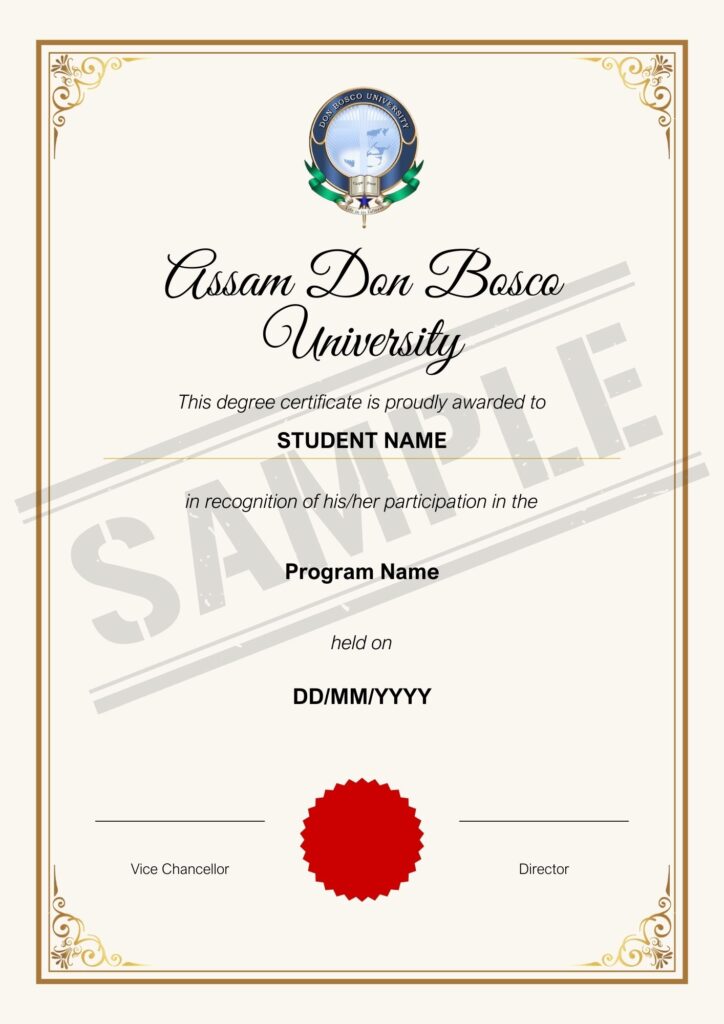Test Program
MA in Mass Communication
Duration: 02 Years
No of seats: 40
MA in Mass Communication
The media platforms are so varied, pervasive, influential and fast changing that it is a continuous challenge to keep pace with the latest trends in media-related industries. The MA in Mass Communication programme blends conceptual inputs with hands-on training in journalism, television production, film making and development communication.

Program Highlights and Advantages
Discover our Degree Programs and begin an exciting educational journey

Emerging specializations
New-age specializations shaping tomorrow's business landscape

Robust Learning Model
550+ hours of video lectures to help you maximize your learning

Personalized Learning
Personalized learning through unique option of choice based credit system

Real World Projects
Real world projects & case studies to help you succeed in your domain
Program Overview & Structure
| History and Development of Communication Media |
| Philosophy of Communication |
| Theoretical Perspectives of Communication |
| Principles and Practices of Journalism a |
| One course to be opted as offered by other departments |
| Techniques of Photography and Image Editing |
| Journaling |
| Investigative and Data Driven Journalism |
| Theories of Communication for Development and Social Change |
| Communication Research Methodology |
| One course to be opted as offered by other departments |
| Elective – I: Rural Communication |
| Dissertation Phase-I |
| Audio-Video Production |
| Media Laws, Ethics and Social Responsibility |
| Marketing and Public Relations |
| Dissertation – Phase II |
Specialization: Electronic Media
|
Specialization: Print Media
|
Specialization: Communication for Development
|
| Media and Cultural Studies |
| Internship |
Specialization: Electronic Media
|
Specialization: Print Media
|
Specialization: Communication for Development
|
Degree offered by us

Eligibility
Grade /Marks requirement from qualifying examinations
Graduation in any stream with 50% of the aggregate. Those who have a background in Mass Communication, Journalism, Photography, etc., will have an advantage.
Provisional Admission
Applicants who have not yet obtained their Bachelor’s Degree also may apply for admission. Such candidates would be offered provisional admission until they furnish evidence of fulfilling the eligibility criterion stated in (1) above within 3 months of the commencement of the programme.
Career Impact
How We Help You Build Your Dream Career
Industry Mentors
Personalized guidance from career experts throughout the academic journey.
Placement Drives
Connect with employers & explore opportunities through interactive online events.
Master Classes
Access comprehensive help for resume building, interview preparation and job placement.
Profile Building
Build a credible professional profile by showcasing your skills through hands-on projects.
F.A.Q.
Supporting Subheading
The university offers a range of undergraduate, graduate, and doctoral programs across disciplines including engineering, science, arts, business, and health sciences. Each program has its own specific requirements and areas of focus.
You can apply online through our university’s admissions portal. Complete the application form, submit the required documents (such as transcripts, test scores, and recommendation letters), and pay the application fee. Detailed instructions are available on our admissions webpage.
Admission requirements vary by program. Typically, undergraduate programs require a high school diploma and specific academic credentials, while graduate programs may require a bachelor’s degree in a related field, relevant test scores, and work experience. Be sure to review the specific requirements for the program to which you are applying.
Yes, the university offers a variety of scholarships and financial aid programs based on academic merit, financial need, and other criteria. Information about available scholarships and how to apply is available on the university’s financial aid webpage.
Application deadlines vary depending on the program and the intake period (e.g., fall, spring). Be sure to check the program’s admissions page for specific deadlines.
